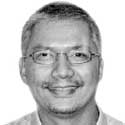
Courtside
By Anthony L. Cuaycong
Roger Federer fans, and there are legion, couldn’t help but beam with delight after their favorite player steamrolled to his record 18th quarterfinal-round appearance at Wimbledon earlier this week. He certainly didn’t look the part of a would-be champion heading into this year’s staging of the sport’s premier event. Felled by two knee surgeries and safety protocols owing to the raging pandemic, he was able to play in only eight tournaments in the last 17 months. And his relative lack of sharpness showed early on; in fact, he could very well have been down and out in the first round had hitherto-unheralded opponent Adrian Mannarino not retired due to injury while leading two sets to one.
A week in tennis may not be long, but Federer spoke as if an eternity had passed between his near miss and his dominant showing in the Round of 16. He declared himself “extremely happy” with his performance and continued march at the All England Club. A month short of his 40th birthday, he appeared to be gaining momentum and peaking at just the right time for a projected meeting with World Number One Novak Djokovic in the final. All he had to do was claim two more victories to keep his supposed date with fate. As things turned out, however, he could not summon the magic that made him the king of Centre Court for the better part of two decades.
That Federer lost to Hubert Hurkacz was arguably a shock in and of itself — with due apologies to the 14th seed. That he did so in straight sets, a development not seen since he claimed the first of eight Wimbledon titles in 2003, was downright unforeseen. This was, after all, THE living legend, and ostensibly sharp and ready for his place under the klieg lights, with the hardware on the line. Then again, he wasn’t simply going up against a capable opponent. He was, more importantly, going up against himself; pushing the big Four Oh, he looked all too ready to test the rocking chair that await him.
Understandably, Federer refused to commit whether he would still be motivated to compete, or if he would contemplate going gently into the good night. He was forthright in his post-mortem, disclosing that he would discuss his future thoroughly with his team. No matter what path he decides to take, however, there can be no questioning his place in the annals of tennis as the greatest player it has had the privilege to host. He most definitely raged against the dying of the light. And rages still.
Anthony L. Cuaycong has been writing Courtside since BusinessWorld introduced a Sports section in 1994. He is a consultant on strategic planning, operations and Human Resources management, corporate communications, and business development.